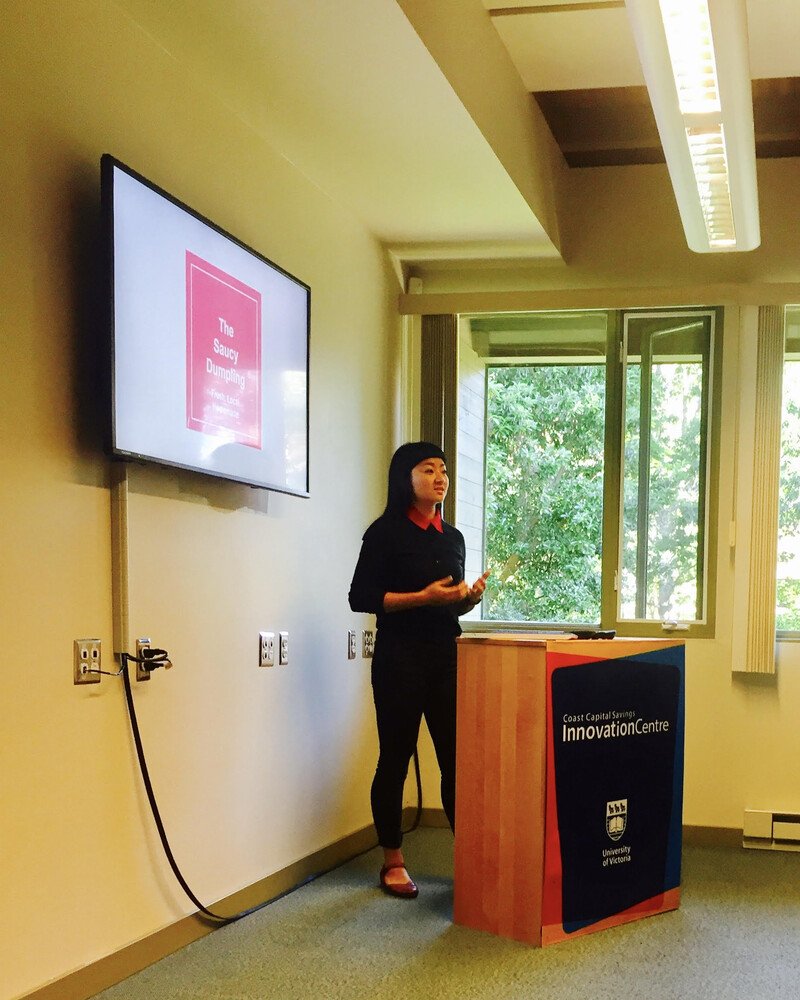An Ode to "Failures"
When I was 27 years old, I almost started a business called "The Saucy Dumpling".
I had just moved to a new city for a job that turned out to be a disappointment, so I was looking for a new challenge while I looked for another position.
I did a lot of market research online and in-person; talked to small business owners in the food industry for their advice; and created a business plan and spreadsheets for budget, test recipes, and pricing.
My research indicated that was a huge gap in the local food scene and certainly a customer base and appetite for organic, locally-sourced, "authentic" Chinese-style dumplings.
I even pitched the idea at a business pitch competition to get feedback on my idea; I came in 5th and got a water bottle for my efforts (but no investor funding).
However, I quickly scrapped the whole idea after realizing that hand-folding dumplings for financially-privileged customers who could afford to pay top dollar for "artisanal" dumplings was not what I wanted to pursue. The process of this "failed" business provided me with invaluable insights into what actually ignited my drive and who I wanted to work with.
Four years later, I launched my career coaching service for equity-deserving professionals, which was a much better fit with how I wanted to spend my free time, the skills I wanted to develop, and the clients I wanted to provide services to.
We don't talk about the importance of "failures" enough. Yet, anyone who is successful now have experienced plenty of rejection and self-doubt. I often tell my career coaching clients that I keep a list of all the job rejection I've ever gotten to normalize and de-personalize it from my core identity.
We are not our failures. Our failures are data that provides us with information on what our future direction can be.
In the spirit of being more vulnerable and open with talking about "failures", here is a short list of my "failures" - both large and small:
I applied for 50 jobs the summer I graduated from my undergrad and was rejected by all but one organization; however this position was pivotal in leading me towards a career in public health and public policy
I was fired from my first job after my Masters, which was the push I need to start a new chapter in my current city and to be more self-reflective of my strengths and weaknesses
I was rejected multiple times before I secured a Policy Analyst position with the BC Public Service, which gave me a better understanding of the hiring process
I left a public health consulting business that I started with a friend from my Masters program as I was experiencing burnout and the work was straining our friendship; however, this allowed me to focus on my health and wellbeing, as well as repairing my relationship with my friend
On a lighter note: I have failed at numerous creative hobbies (poetry, creative writing, linocut, painting, guitar, ukulele), which has allowed me to hone in on activities that best fits my personality, skill-level, and lifestyle (currently, sewing has taken over my free time in a big way).
These different types of "failures" do not define me, but they have shaped me into the person I am today. If I am being honest, I definitely took each and every "failure" personally and as a result, gave my power away to people and situations. I had to work on my perfectionist tendencies, especially when I would be unnecessarily hard on myself for "failing" at hobbies and other leisure pursuits.
These days, I am much better at taking "failures" and rejections in stride by focusing on the direction I am heading towards, rather than ruminating about every detour along the way.
My dumpling business is just one more example of how a professional "failure" can lead to new and expansive horizons that we can't even imagine right now. In the last couple years, several dumpling shops have opened up in my city and I am happy to support them as a customer.
Personally, I am really glad I quit while I was ahead -- or rather, before I invested even more time and money, since the business never launched -- because it gave me the space to focus on my career, hobbies, and personal life until I was ready to pursue another venture.
Which of your "failures" have shaped your career for the better? How do you define "failure" and how do you let it impact you? These are some of the questions I explore with my career coaching clients and it usually generates self-knowledge, career insights, or more questions.
If we follow the path of questions to their natural end-point, we usually will find some nuggets of gold.




